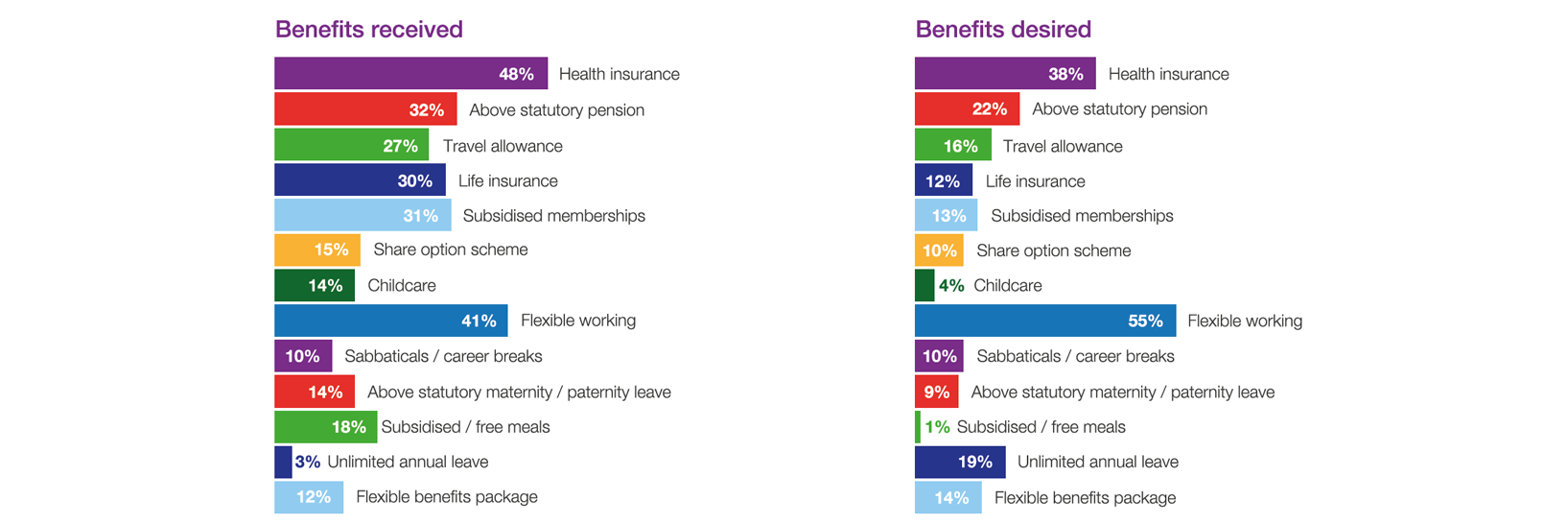Flexible working the ‘most desired’ benefit
13 May, 20195 minsHealth insurance, above statutory pension and flexible working are the three most commonly r...

Health insurance, above statutory pension and flexible working are the three most commonly received benefits according to our 2019 Salary & Benefits Survey. The results, taken from over 1,200 responses to a questionnaire conducted at the end of 2018, found that 41% had flexible working offered to them as part of their benefits package.
Whilst the percentage of people across digital sectors allowed to work flexibly compared favourably to other industries, there is still a 14% difference between those who’d have flexible working as a benefit (41%) and those that want it (55%).

The results also showed that sales professionals were least likely to receive flexible working in their benefits packages (37%), while those working in a planning and buying function were the most likely (47%).
60% of data and analytics professionals wanted to work flexibly, as did 60% of those in planning and buying roles, the highest percentage across the surveyed specialisms.
The biggest difference between those that were offered flexible working and those that wanted it was 17%, within ad ops and programmatic roles. 58% wanted flexible working compared to 41% who had this benefit available to them.

What does this mean for talent and companies?
Employees that feel they are trusted to get their work done in the hours that suit them creates a sense of empowerment and greater buy in to the company's values. Having the flexibility to better meet their family and personal needs boosts morale, reduces absenteeism and improves employee engagement.
As the workforce continues to diversify and change, flexible working needs to become more common place. Employee expectations that companies should change to incorporate flexible working is increasing and as such, businesses are going to have to react to retain their staff.




